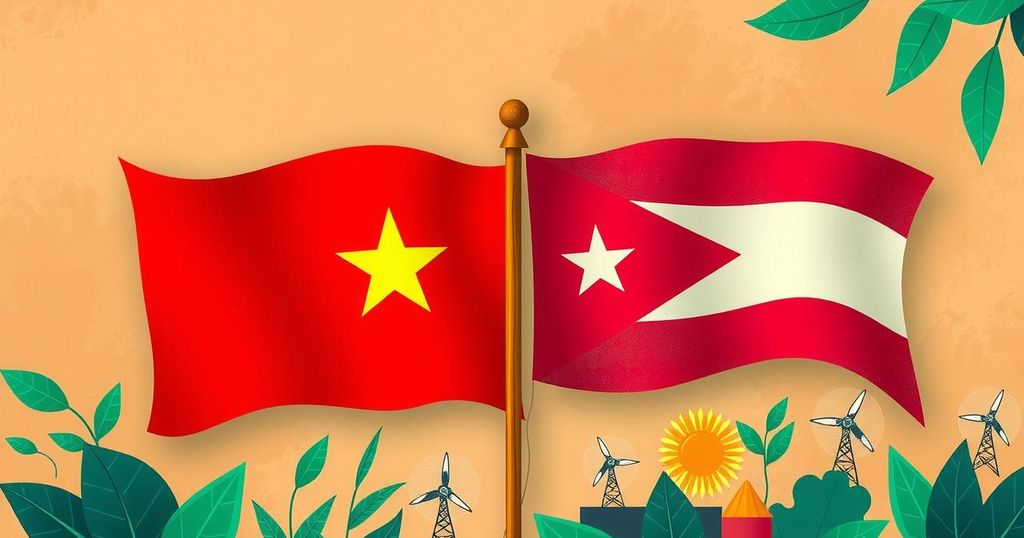Florida Faces Fuel Shortage and Recovery Challenges After Hurricane Milton
Floridians are enduring a fuel shortage as recovery from Hurricane Milton begins, leading to long waits at gas stations. Governor Ron DeSantis has announced fuel distribution initiatives to assist residents. The storms have caused substantial property damage, with tragic human losses and ongoing recovery efforts hindered by rising water levels and power outages. President Biden is set to visit Florida to address recovery funding.
Floridians are grappling with a severe fuel shortage as they recover from Hurricane Milton, which forced many residents to evacuate their homes. On Saturday, long lines formed at gas stations across the state, including in St. Petersburg, where Daniel Thornton waited for hours without success at a station that had yet to receive a fuel delivery. Governor Ron DeSantis announced that the state had established three fuel distribution sites to assist residents, allowing them to collect up to ten gallons of fuel at no cost while restoration efforts continue. Efforts are underway to supply gas to the affected stations using the state’s fuel reserves, with additional resources, such as generators, being provided to stations lacking power. As residents return home, they survey the damage caused by both Hurricane Helene and Hurricane Milton, which left significant destruction in places like Cortez and Bradenton Beach. Bill O’Connell highlighted the devastation, stating that Milton compounded the damage previously incurred from Helene, further flooding properties and destroying roofs and windows. Similarly, Mark Praught lamented the loss of his home’s structural integrity, noting the need for extensive restorations following the storms. In Bradenton Beach, Jen Hilliard illustrated the community spirit as she assisted a neighbor in the cleanup effort by removing debris and repairing storm-damaged properties. The toll of Milton has been tragic, with reports indicating that at least ten lives were lost. Governor DeSantis reported over a thousand rescues as an urgent response to the storm. As recovery operations progress, President Joe Biden is scheduled to visit Florida to assess the damage and discuss funding for recovery efforts, emphasizing the need for Congress to act swiftly to support affected communities. Economists estimate the economic impact of Milton may reach between $50 billion and $85 billion, primarily from property damage and loss of economic output. Additionally, ongoing threats remain as rising rivers pose further risks to communities still recovering. Governor DeSantis has cautioned residents to remain vigilant as restoration efforts continue amidst intermittent power outages and flood warnings from meteorological officials.
In the wake of Hurricane Milton, Florida faces a significant fuel shortage coupled with extensive property damage and recovery challenges. The storm made landfall as a powerful Category 3 hurricane, creating desperate conditions for residents returning home post-evacuation. The state government, led by Governor Ron DeSantis, is engaging in emergency measures to alleviate fuel shortages and mobilize recovery provided through federal support amid ongoing safety concerns such as rising water levels and power outages. The dual impact of Hurricanes Helene and Milton has devastated local infrastructures, increasing the urgency for community aid and assistance.
In summary, the aftermath of Hurricane Milton has severely affected Florida residents, particularly in terms of fuel availability and property damage. The state is actively responding to the crisis through fuel distribution initiatives and community support efforts. As recovery continues, there remains a critical need for federal assistance, and safety precautions must be observed as local risks persist. Ultimately, the collaborative efforts within communities and government underscore the resilience of those affected by these disasters.
Original Source: fortune.com




Post Comment